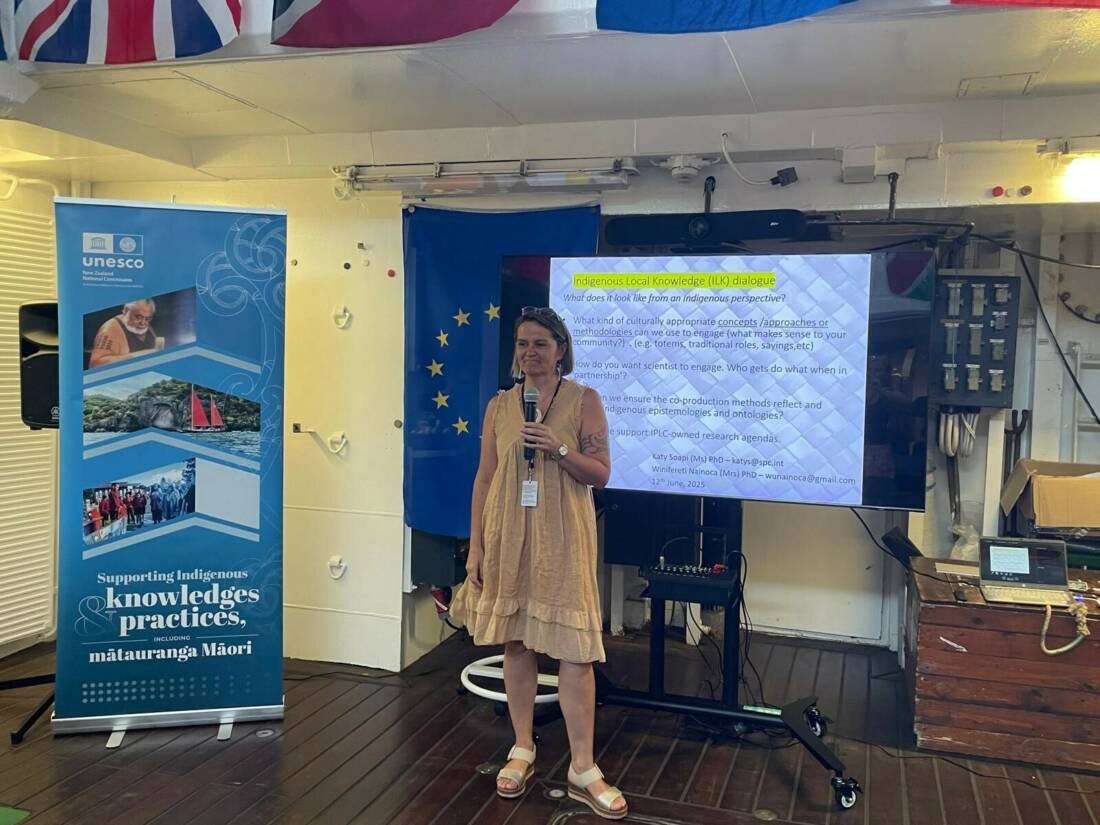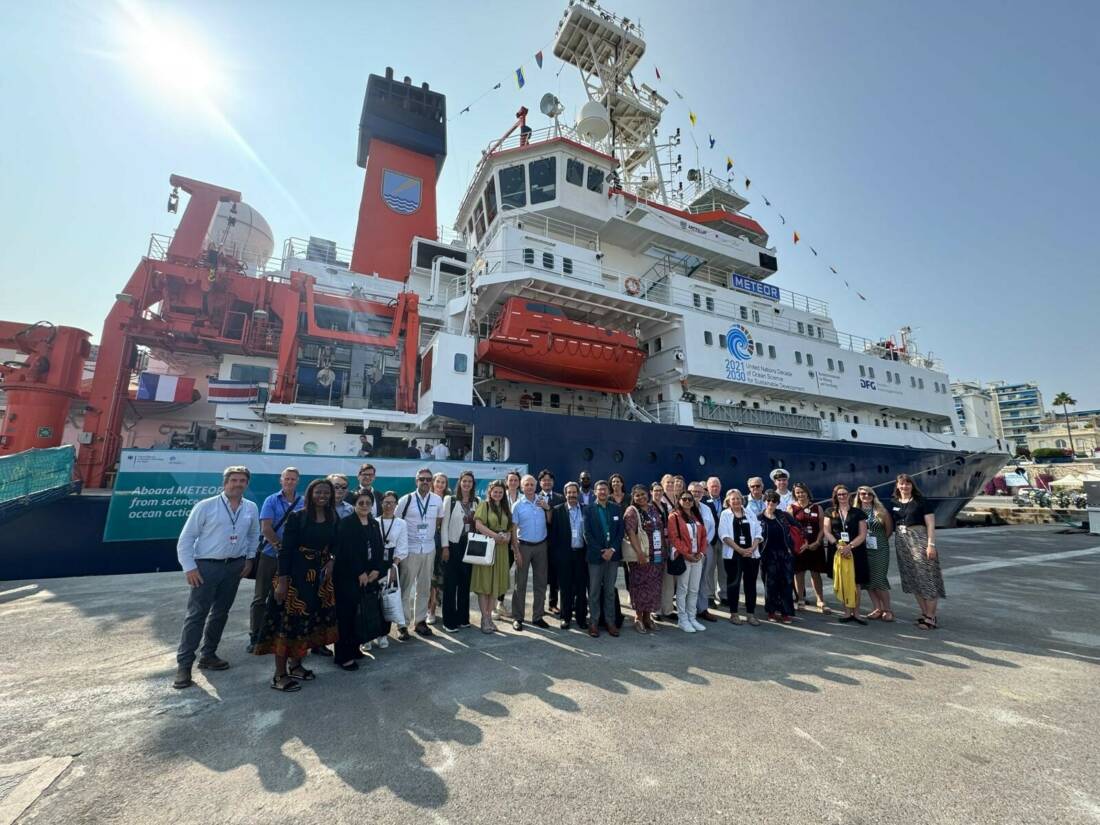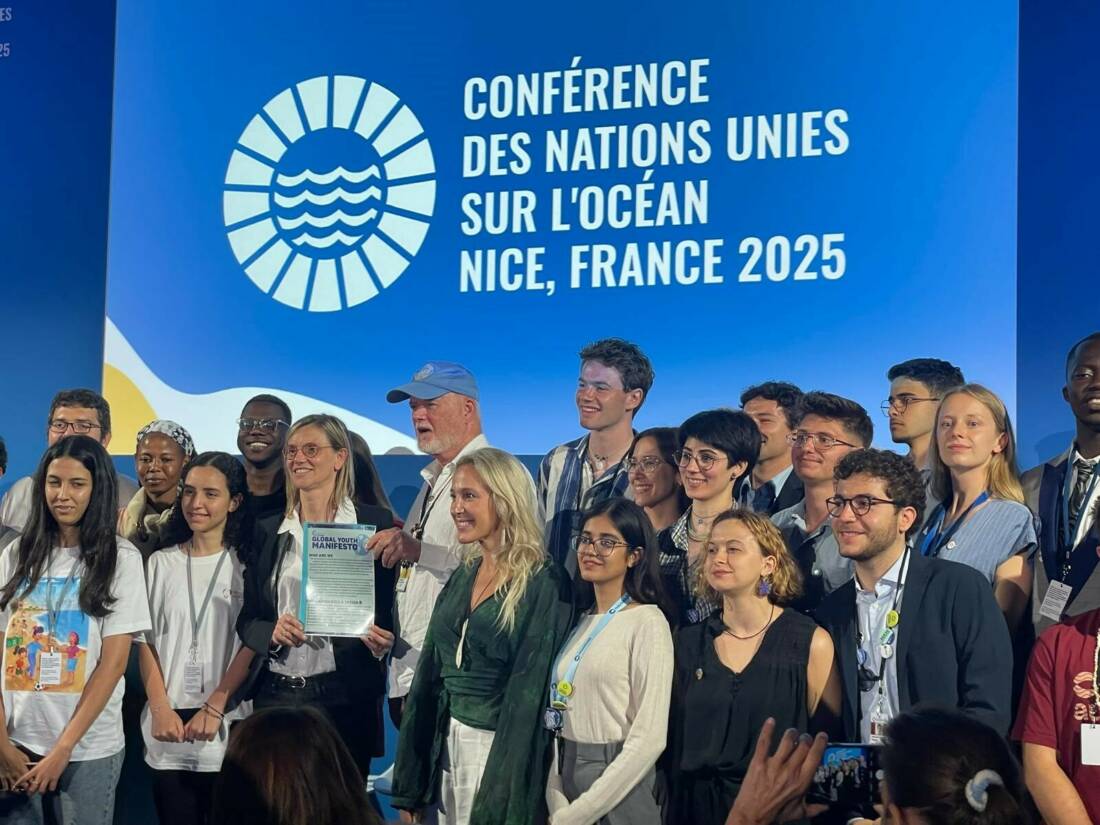Oceans 25
At the New Zealand National Commission for UNESCO we aim to ‘bring the world to Aotearoa New Zealand, and take Aotearoa New Zealand to the world’ and this was well and truly achieved through our attendance at the One Ocean Science Congress, Blue Economy Finance Forum, and UN Ocean Conference held in Nice and Monaco in June.
Our Oceans
Aotearoa New Zealand is an island nation amid the world’s largest and deepest ocean basins spanning subtropical to subpolar latitudes.
It is home to some of the world’s most unique biodiversity; is the seabird capital of the world; and is a marine mammal hotspot. It is also the backdrop to a unique ancestral past steeped in a relationship with the ocean that is as vast and varied as Te Moananui-a-Kiwa, the Pacific Ocean.
For our Polynesian ancestors it was a superhighway connecting people and places across the Pacific and beyond, a feat enabled by a millennia of intergenerational knowledge of the ocean.
Today our oceans continue to provide a vital source of connection, rich biodiversity, valuable ecosystem services, an important source of transport, global trade, food security and nutrition. Our ocean absorbs about a third of the world’s carbon dioxide and provides about half of the world’s oxygen making it critical to our climate system. It supports a diverse range of jobs and livelihoods and is a key component of our natural and cultural heritage, playing an essential role in sustainable development and poverty eradication.
However, as a result of human endeavour, our oceans are in decline across all measurable indices. Our waters are warming at an alarming rate and more than 1500 marine plants and animals are at risk of extinction. Our oceans are absorbing 90% of the excess heat from greenhouse gas emissions and ongoing threats continue from overfishing, rising temperatures, plastic pollution, acidification and our desire to explore further and further into the deep.

Conference Highlights
The vital importance of our oceans to our wellbeing and future was well recognised and articulated through the various conferences in Nice.
The UN Ocean Conference, One Ocean Science Congress and Blue Economy Finance Forum brought together tens of thousands of people across two weeks.
Heads of state, government, indigenous, industry, community and non-government organisation delegates shared and learnt from the experience, knowledge and actions of others.
Commitments were made around marine protection, ocean financing and novel blue economy initiatives, along with calls for knowledge, law and multilateral collaboration in our pursuit of change.
We took away a range of insights and highlights from the plethora of sessions, side-events, and networking opportunities over the two weeks:
- There is growing recognition that ocean health is inseparable from climate stability, food security and global equity - but Sustainable Development Goal 14 (Life Below Water) remains the least funded of the 17 UN global goals.
- Change toward a greater level of sustainable management and development with our oceans is happening – but not quickly or broadly enough, risking levels of degradation that will have devastatingly far reaching and intergenerational impacts.
- There are many great minds and willing hearts keen to accelerate the transformations we need to ensure our wellbeing into the future – but ‘short-termism’ and growing geopolitical challenges limit the opportunities for successful progress.
- Indigenous and local communities are on the frontline of marine protection action and there is greater recognition of the potential of indigenous wisdom to lead the way – but a significant lack of equitable resourcing continues to stifle realising that potential.
- The voice, visibility and value of the leadership of Pacific Nations is evident and powerful.

The future
Despite the dire statistics presented throughout the course of the various events, hope prevailed. There was plenty of evidence that much needed action is being led and driven by non-governmental organisations, indigenous peoples and local communities. The importance and necessity of those actions is increasingly supported by science, and together science, indigenous and local knowledge are powerful forces to achieve the change we need to survive. It is this diversity of knowledge and approach that enables us to achieve more than the sum of their parts. Like the aims of multilateralism – it is the building of bridges, not walls, that holds the key.
In his opening statement at the UN Ocean Conference, Antonio Guterres summed up the prevailing hope:
‘What was lost in a generation, can return in a generation. The ocean of our ancestors – teeming with life and diversity – can be more than legend. It can be our legacy.’

